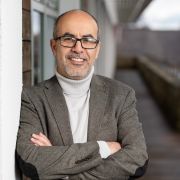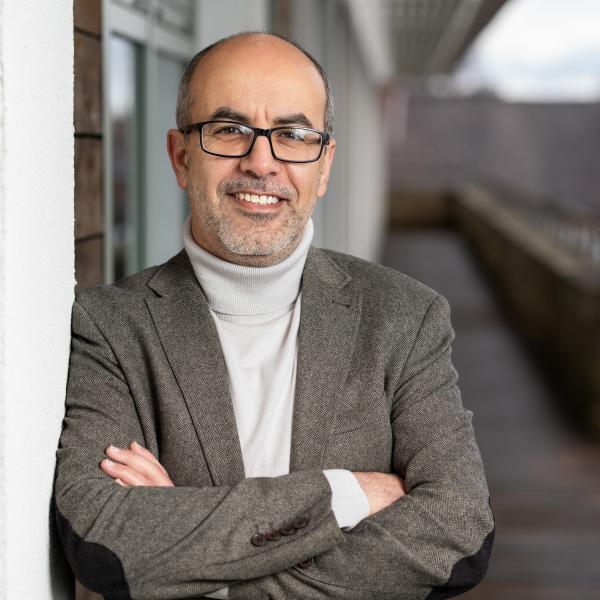By Professor Mimoun Azzouz – originally published by the Sheffield Telegraph.
At the University of Sheffield our motto is “Rerum Cognoscere Causas” (to discover the causes of things). Although the world is now a very different place, this ethos at the heart of our rich history of learning, research and innovation, is as relevant today as when the University was founded in 1905.
As a neuroscientist and gene therapy expert, I am particularly proud of the translational medical research innovated here in Sheffield, which has gone on to change millions of lives across the world.
For example; it’s commonly known that Alexander Fleming discovered penicillin in 1928. However, what is perhaps not as well-known is that it was research and clinical trials conducted by scientists at the University of Sheffield which enabled the drug to go on to save more than 80 million lives worldwide. It was Cecil George Paine, a member of the University’s Pathology Department who first used penicillin to treat an eye infection in two babies. He used penicillin-producing mould supplied by his lecturer, Alexander Fleming, whilst Cecil had been studying at St Mary’s Hospital Medical School in London.
More recently, our researchers developed a lifesaving drug for the treatment of ovarian and breast cancer. Lynparza – a PARP inhibitor also known as olaparib – became the first cancer drug targeting an inherited genetic fault to be made available on the NHS. It is now used by women with certain types of ovarian cancer and breast cancer and has recently been given the green light to also be used to treat prostate cancer following a successful clinical trial.
Today, Sheffield is once again at the forefront of a new generation of medicine - gene therapy. Gene therapy is when faulty genes are replaced, or new genes are added inside our body’s cells to treat or cure disease.
It is a promising treatment option for more than 7,000 rare diseases that currently have no cure, giving hope to the millions of people who are diagnosed with genetic diseases caused by complex heredity and environmental interactions that we as scientists still don’t fully understand.
Gene therapy is arguably the most exciting area of therapeutics for rare diseases due to recent progress in the field and the promising possibilities. Last month, a girl born with the rare and life limiting genetic condition metachromatic leukodystrophy (MLD), that causes catastrophic damage to the nervous system and organs, became the first person to be cured with the help of a revolutionary gene therapy on the NHS.
Sheffield, already internationally renowned for its world-class rare disease research, has emerged as one of the leading players in cell and gene therapy.
We were the first site in the UK to deliver a genetic therapy trial for motor neurone disease (MND) in collaboration with the pharmaceutical company Biogen. Research by scientists at the University of Sheffield found that gene silencing could slow down the damage caused by a mutation in the SOD1 gene which is responsible for two per cent of MND cases.
Our researchers were also part of a team who demonstrated the use of advanced stem cell therapy for treating multiple sclerosis (MS). To do this they used stem cells from the patient's own bone marrow to effectively reboot their immune system, halting its attack on the nervous system. The trial has produced some promising results, with some patients having regained their ability to walk, run and even ride a bike.
Our leading facilities and expertise led to the University of Sheffield being chosen to house one of three new pioneering gene therapy hubs in an £18 million network funded by LifeArc and the Medical Research Council (MRC), with the support from the Biotechnology Services Research Council (BBSRC).
The new Gene Therapy Innovation Manufacturing Centre (GTIMC), which brings together academic institutions, NHS trusts, non-profit and industry partners across the north of England, Midlands and Wales, will open fully later this year.
Becoming part of a national network of partners, facilities and training programmes will allow us to stay at the cutting edge and accelerate revolutionary research into promising and innovative treatment options for conditions such as cystic fibrosis, haemophilia, spinal muscular atrophy, motor neurone disease and dementia.
Currently across the UK there is not enough capacity for producing gene therapy treatments - this means we don’t have the scale required to conduct vital Phase 1 and Phase 2 clinical trials which are needed to test the safety and effectiveness of treatments in patients.
The new GTIMC facility will not only drive new gene therapies and clinical trials, but it will build career pathways for people in the region and start to develop Sheffield and Yorkshire as a hub for gene therapy in the future. The economic benefits could be considerable, given the potential to catalyse creation of new start-up companies - similar to the near-explosion of activity seen around the ‘golden triangle’ of London-Cambridge-Oxford.
None of this inspiring work would be possible without the support from the large community of fundraisers and donors across the region and beyond who recognise how important this work is.
Your donations made it possible to purchase a £200,000 bioreactor for the GTIMC. This is key to being able to conduct our revolutionary research and future clinical trials.
And as preparations continue for the opening of the GTIMC later in the year, it is important for those involved in genetic disease research at the University of Sheffield to say a massive thank you to everyone who has contributed. Your continued support and donations mean more equipment, more scientists and more progress towards our goal of being able to cure genetic diseases. Thank you!



